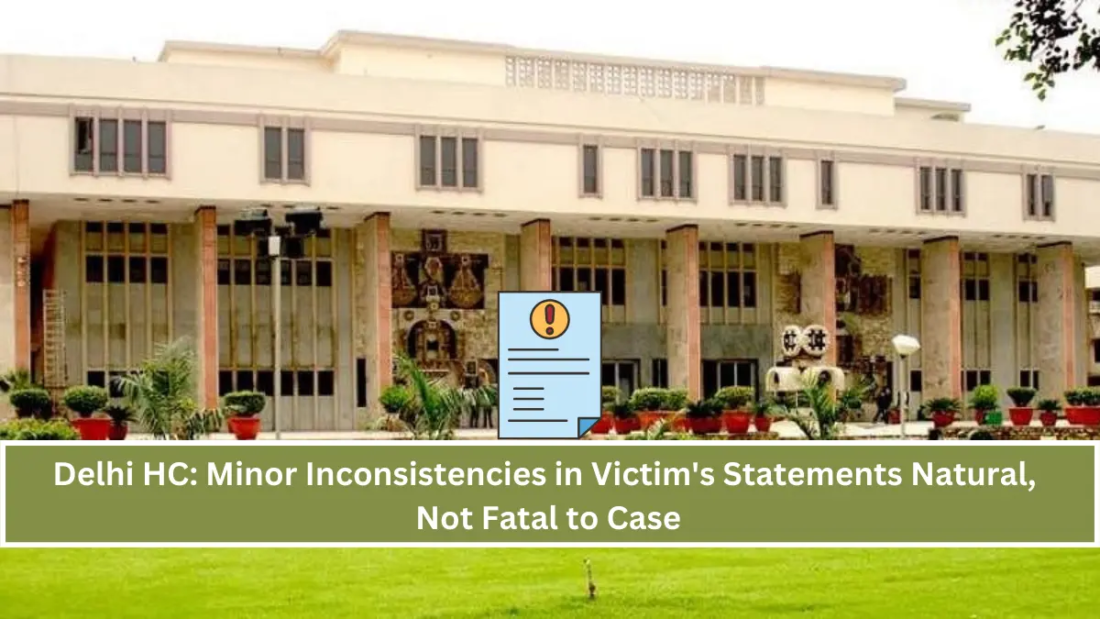Introduction: In X v. Government of NCT of Delhi & Anr., CRL.A. 332/2023, the appellant filed an appeal to dismiss the conviction where he was sentenced to rigorous imprisonment for 10 years. The victim had categorially stated that she was sexually assaulted by the appellant on 3 occasions and threatened with a knife. The court Rejected the contention that the victim was not a minor at the time of the alleged incident. The Court noted that the school records pertained to 2010 therefore it could not have been manipulated by the school.
Facts: The appellant filed an appeal challenging the conviction and sentence under Section 376/506 IPC and Section 4/6 of the POCSO Act. The case involved allegations of sexual assault on a minor. The victim, in her complaint, detailed multiple instances of assault by the accused under threatening circumstance.
Contention of the Appellant (Accused): The Appellant contested the victim’s age, claiming it was not proven, argued a consensual relationship, and cited contradictions in statements. The Appellant questioned the reliability of school records and the victim’s parents’ testimony regarding her age.
Contention of the Respondent (State): The prosecution asserted the victim’s age was established through school records, medical evidence, and the victim’s testimony. They refuted the defense’s consensual relationship claim, emphasizing the threat and coercion involved.
Court’s Observation: The trial court had examined 17 witnesses, including the victim, and considered the statements of the accused and his family. It acknowledged minor inconsistencies but emphasized the victim’s trauma and the fallibility of memory. The court found the victim’s age proven through school records and affirmed the trial. HC upholded the victim’s age proof from original documents, dismissing claims of manipulation. It stated that “Minor inconsistencies in the victim’s statements are deemed natural, not fatal to the case.”
Delhi High Court observed that courts cannot expect witnesses in sexual assault cases to recount case details in same words every time.
“…the statements of such minor victims have to be examined from the lens of delivering justice in accordance with principles of fair criminal trial to accused and victim, and not on the yardstick of strict factual accuracy of words. It is the substance of the testimony which is to be appreciated”.
HC added that a victim’s trauma of giving birth to the accused’s child must also not be ignored.
“…the economic, financial and educational background of victim, the trauma they have faced due to sexual assault and giving birth to child of accused can, at no point of time, be ignored by the courts…..…it is very unfortunate that the victim of sexual assault had given birth to a child born due to the sexual assault while she was only 14-15 years of age. Being a sexual assault victim forced to give birth to the child of the accused, she would have undergone unfathomable pain, trauma, and stress. In this case, it was not the victim alone who was a victim, it is also the entire family and the child born to the victim who are victims of this offence, through this Court has been informed that the child has been given in adoption by the concerned authorities as the victim could not afford to take care of him.”
On the issue of inconsistencies in testimonies, the court said that the victim supported the prosecution’s case on all major aspects. Though some minor inconsistencies were there, the same were not fatal and could be attributed to fallacies of human memory and state of the mind of the victim who was 14 years of age at the time.
Court’s Decision: Finding no infirmity in the Trial Court’s judgment, the appeal is dismissed. The court underscores the victim’s trauma, emphasizes medical evidence, and rejects the defense’s inconsistent claims, affirming the prosecution’s case is proved beyond reasonable doubt.
 Cart is empty
Cart is empty 

